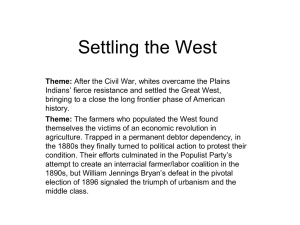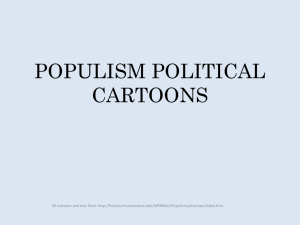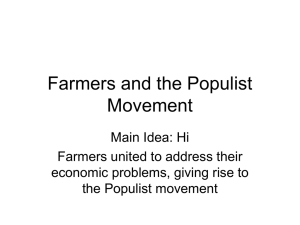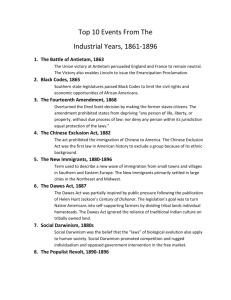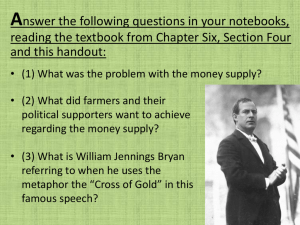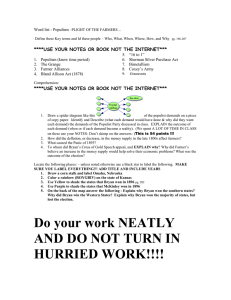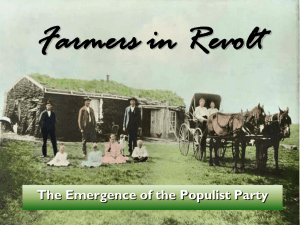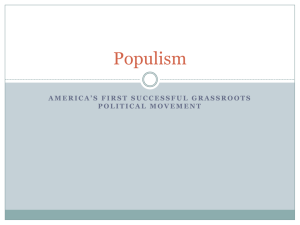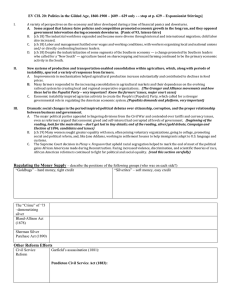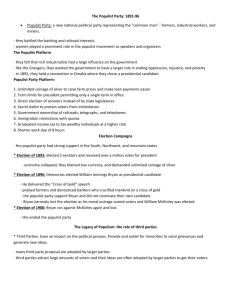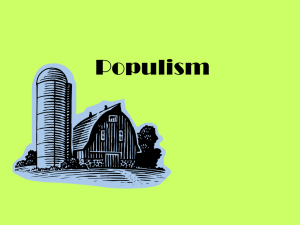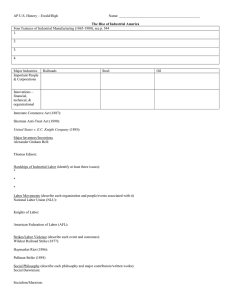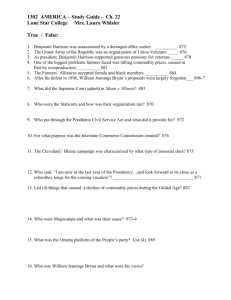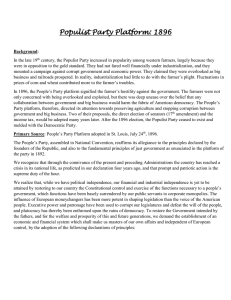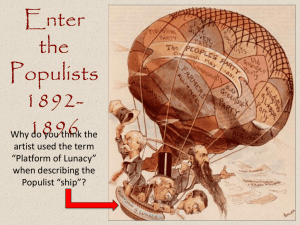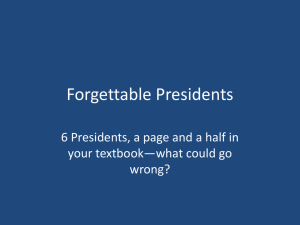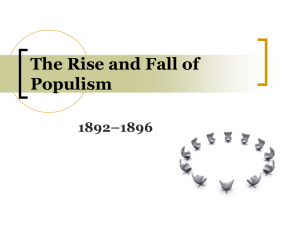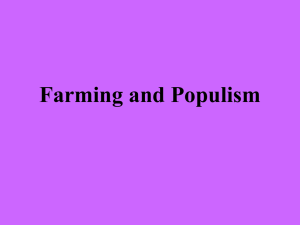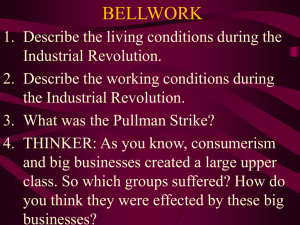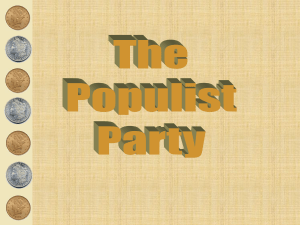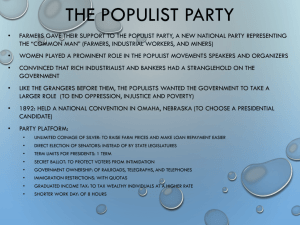The Rise of the Populists
advertisement
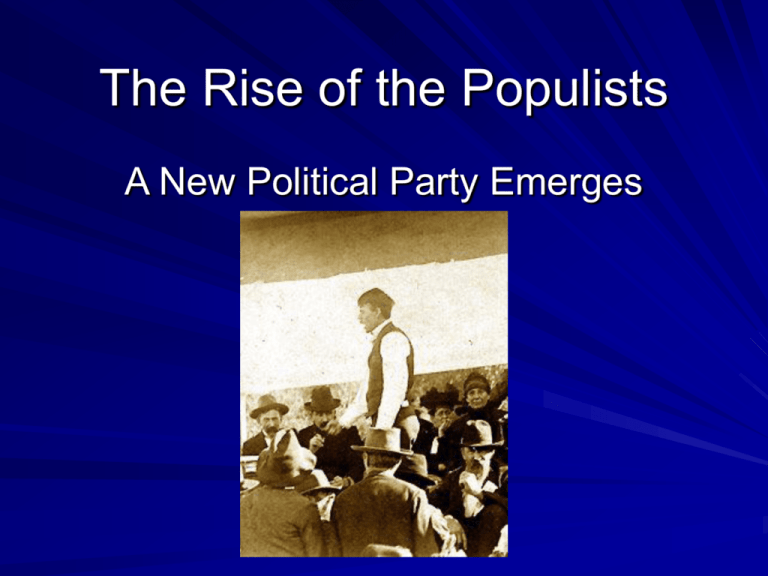
The Rise of the Populists A New Political Party Emerges Basis of Populism A. The Farmer’s Alliances 1. Demands made to Politicians B. 1890 Congressional Election 1. Rise of independent Parties Intellectual Basis for Populism A. Henry George-Progress and Poverty B. Edward Bellamy-Looking Backward C. Henry Demarist Lloyd-Wealth Against Commonwealth D. William A. Harvey-Coin’s Financial School Populist Leaders & Spirit A. Kansas Atmosphere B. Mrs. Mary E. Lease C. Jerry Simpson D. Typical Southern Leaders 1. Benjamin Tillman 2. Thomas E. Watson The Populist Program A. Organized Party 1. Omaha-July 2, 1892 B. Populist Platform 1. National, Flexible Currency 2. Free & unlimited coinage of silver 3. Graduated Income Tax 4. Gov’t Ownership of RR’s, T&T 5. Amendment Limiting President to ONE Term 6. MORE Campaign of 1892 A. Populist 1. Gen. James B. Weaver B. Democrats 2. Grover Cleveland 2nd run C. Republicans 1. Benjamin Harrison -The Campaign -Results -The Future Cleveland’s Second Term and Election of 1896 A. Panic of 1893 1. Causes 2. Effects 3. Demands for Government Aid 4. Role of Gold Reserve in Panic a. Sherman Silver Purchase Act Cleveland’s Financial Activities A. Repeal of Sherman Anti-Trust Act B. Bond Selling C. Failure of Tariff Reform House Elections of 1894 A. Results B. Significance Nominations in 1896 A. Republican 1. William McKinley a. Garrett Hobart (VP) B. Democrat 1. William Jennings Bryan a. Cross of Gold Speech C. Populists 1. Bryan (Watson VP) Campaign of 1896 A. Campaigning 1. Monetary Issues B. Results 1. President William McKinley a. A victory for big business Aftermath of Election A. Currency 1. Gold Standard Act [1900] B. Broader Significance 1. End of third party movement 2. Last great upsurge of agricultural interests vs. industrialism C. Failure of Bi-racial Politics in the South 1. Rise of “race-baiting” politics 2. Triumph of “Jim Crow” 3. Racial violence 4. Black Response a. Washington and Dubois “King William”
